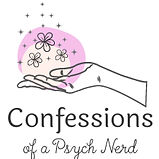Day 1 Part 1: Boston International Trauma Conference - Human Connection
- Lugbelkis Wernet
- May 17, 2023
- 3 min read
I recently had the opportunity to get a scholarship to virtually attend the 34th Annual Boston International Trauma Conference. Featuring keynote speakers such as Gabor Mate, Bessel van der Kolk (author of The Body Keeps The Score), and Richard Schwarts (the developer of Internal Family Systems Therapy). To me, this lineup was like a dream come true 🤩.
Today was Day 1 and I have been attending the conference since 8am (it's 8:15pm now). My brain is completely numb and tired from watching videos all day but my mind is blown by all the amazing information that I have gotten today. In the upcoming posts, I will be sharing some thoughts and what stood out to me in sessions I attended. Since there is so much that I want to share I will do this in parts, so bear with me.
We started with a workshop called From Empathic Distress to Compassion: Building Resilience in the Face of Trauma, featuring Tania Singer (German Psychologist) and Ron Siegel (Assistant Professor of Psychology at Harvard Medical School).
During the conference session, Tania introduced the ReSource Project, one of the largest scientific studies on mental trainability. The project explores qualities like mindfulness, compassion, perspective-taking, and pro-social behavior. Tania initiated this comprehensive study in 2008, using various methods and disciplines.
The ReSource training protocol consists of three 3-month modules: Presence, Perspective, and Affect. Each module focuses on developing different mental and emotional capacities. For example, Presence enhances body awareness and attention, Affect cultivates gratitude, compassion, and coping with difficult emotions, while Perspective improves meta-cognitive skills and understanding oneself and others.
In the training, participants engage in two core practices from each module almost every day, spending around 30 minutes in total. They use a meditation app on their smartphones for classical meditation and Contemplative Dyads, which are 10-minute partner exercises. One finding I found intriguing was that participants who did the dyad exercises felt a stronger connection to their future exercise partner before even starting with them (they were switched every week). The dyads acted as a social glue that went beyond the partnership. This felt similar to my experience with the 29k program. A program I took part in at the beginning of my healing journey where you formed groups with people from around the world, do weekly exercises and attend weekly video sessions where you hold space for the others while they share their experiences. This program had a very positive effect on me, and during the very hard days of my early healing journey, this was one of the things I held on to. There is something about connection that is very powerful. Even when the other person is a stranger. Just being there with another human in a safe space can feel so healing. Some other findings that I found interesting were:
You can train the brain at any age.
Practice takes time - the study took 9 months - it wasn't until some months into the study that significant results started to emerge. I am 3 years into my healing journey, and I can tell you that it is a continuous journey. You learn new things about yourself every day and healthier ways to deal with the world around you.
There were many other interesting findings that you can read about on the website I included at the end of this post.
In conclusion, the conference session emphasized the profound significance of human connection. Whether through research studies like the ReSource Project or personal experiences like the 29k program, it becomes evident that our well-being and growth thrive in the presence of genuine connections.
We are social beings, and our journeys of healing and self-improvement are greatly enriched when we come together, support one another, and create safe spaces for sharing and growth.
Let us remember that we need each other; we were never meant to do this alone.
If you want to learn more about this study, I welcome you to visit: https://taniasinger.de/the-resource-project/
https://humanize.com/ - The Humanize Dyad is a short partner-based mental practice
For more information about the 29k program you can visit: https://29k.org/




Comments